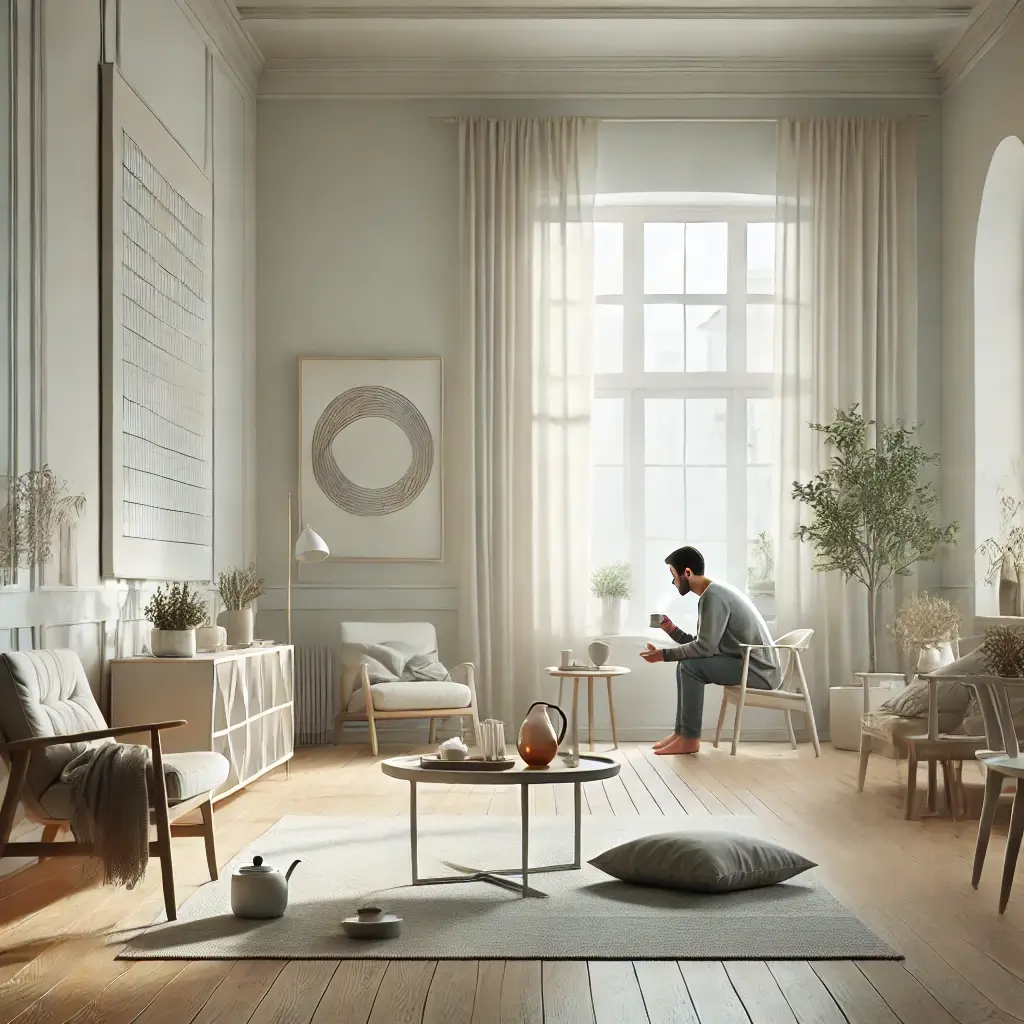-
How Digital Nomads Are Redefining Work and Lifestyle 🌍💻
Mar 06, 2025 | 38 Comments -
How Artificial Intelligence is Transforming Healthcare 🏥🤖
Mar 06, 2025 | 0 Comments -
How Cryptocurrency is Reshaping the Global Economy 💰🌍
Mar 06, 2025 | 0 Comments -
How to Build a Strong Personal Brand: Stand Out & Grow Your Influence 🚀📢
Mar 02, 2025 | 0 Comments -
The Power of AI in Business: How Artificial Intelligence is Transforming Industries 🚀🤖
Mar 02, 2025 | 0 Comments -
How Smart Homes Are Changing the Way We Live 🏡🔋
Mar 02, 2025 | 0 Comments -
How Electric Vehicles Are Revolutionizing Transportation 🚗⚡
Mar 02, 2025 | 0 Comments -
The Future of Renewable Energy: How Green Technology is Changing the World 🌍⚡
Mar 02, 2025 | 0 Comments

The Impact of Minimalism on Mental Health and Well-being
In a world filled with constant distractions and overwhelming clutter, minimalism offers a refreshing approach to living. This lifestyle focuses on simplifying your life by eliminating excess possessions, commitments, and stressors, allowing you to focus on what truly matters. Beyond its aesthetic appeal, minimalism has a profound impact on mental health and overall well-being. This article explores how adopting a minimalist lifestyle can help you lead a more balanced and fulfilling life.
What is Minimalism?
Minimalism is a way of living that emphasizes quality over quantity. It involves decluttering your physical space, simplifying your schedule, and being intentional with your choices. While often associated with clean and simple aesthetics, minimalism goes beyond appearances, fostering a mindset of mindfulness and purpose.
At its core, minimalism encourages you to focus on what adds value to your life and let go of anything that doesn’t. This can range from unnecessary possessions to toxic relationships or overwhelming commitments.
The Mental Health Benefits of Minimalism
Living a minimalist lifestyle can have transformative effects on mental health. Here’s how minimalism contributes to emotional and psychological well-being:
- Reduces Stress: Clutter and excess can create feelings of chaos and overwhelm. By decluttering your space and simplifying your life, you reduce sources of stress and create a calmer environment.
- Enhances Focus and Clarity: A clutter-free space promotes mental clarity, making it easier to concentrate on important tasks and goals.
- Improves Emotional Resilience: Minimalism helps you let go of material attachments and focus on inner happiness, fostering greater emotional strength.
- Promotes Mindfulness: By living intentionally, you become more present and aware of your thoughts, actions, and surroundings.
- Encourages Gratitude: Owning less allows you to appreciate and cherish what you have, leading to a greater sense of contentment.
Minimalism and Physical Well-being
The benefits of minimalism extend beyond mental health to physical well-being. A clutter-free home is easier to maintain, leading to a cleaner and healthier living environment. Additionally, minimalism often inspires healthier habits, such as focusing on quality over quantity in your diet and prioritizing exercise over material pursuits.
For example, a minimalist approach to your wardrobe can simplify decision-making in the morning, reducing decision fatigue and freeing up energy for other activities.
Steps to Adopt a Minimalist Lifestyle
Transitioning to a minimalist lifestyle doesn’t have to be daunting. Here are practical steps to get started:
1. Declutter Your Space
Start by going through your belongings and identifying items you no longer use or need. Donate, recycle, or sell these items to create more space and reduce clutter. Focus on one area at a time, such as your closet, kitchen, or workspace.
2. Simplify Your Schedule
Evaluate your daily commitments and prioritize activities that align with your values and goals. Learn to say no to unnecessary obligations, creating more time for relaxation and meaningful pursuits.
3. Practice Mindful Consumption
Be intentional with your purchases by focusing on quality over quantity. Before buying something new, ask yourself whether it adds value to your life and aligns with your minimalist goals.
4. Create a Minimalist Digital Space
Declutter your digital life by organizing files, deleting unused apps, and unsubscribing from unnecessary emails. A streamlined digital environment can reduce distractions and improve productivity.
5. Focus on Experiences Over Possessions
Shift your focus from accumulating material items to creating memorable experiences. Spend your time and resources on activities that bring you joy and fulfillment, such as traveling, learning a new skill, or spending time with loved ones.
Overcoming Challenges in Minimalism
While minimalism offers numerous benefits, it’s not without challenges. Here are some tips to navigate common obstacles:
- Letting Go of Sentimental Items: Start with items that hold less emotional value, and gradually work your way toward sentimental belongings. Consider taking photos of items before letting them go to preserve the memories.
- Dealing with Resistance: Minimalism may not resonate with everyone in your household. Communicate your goals and involve others in the process, but also respect their boundaries.
- Avoiding Perfectionism: Minimalism is not about achieving a perfect aesthetic. Focus on creating a lifestyle that works for you rather than adhering to strict rules.
The Long-Term Impact of Minimalism
Embracing minimalism is a journey, not a destination. Over time, this lifestyle can lead to greater self-awareness, improved relationships, and a stronger sense of purpose. By letting go of excess, you create space for what truly matters, both physically and emotionally.
Minimalism also has a positive impact on the environment, as it encourages mindful consumption and reduces waste. By living with intention, you contribute to a more sustainable and harmonious world.
0 comments
No comments yet. Be the first to comment!
Your comment